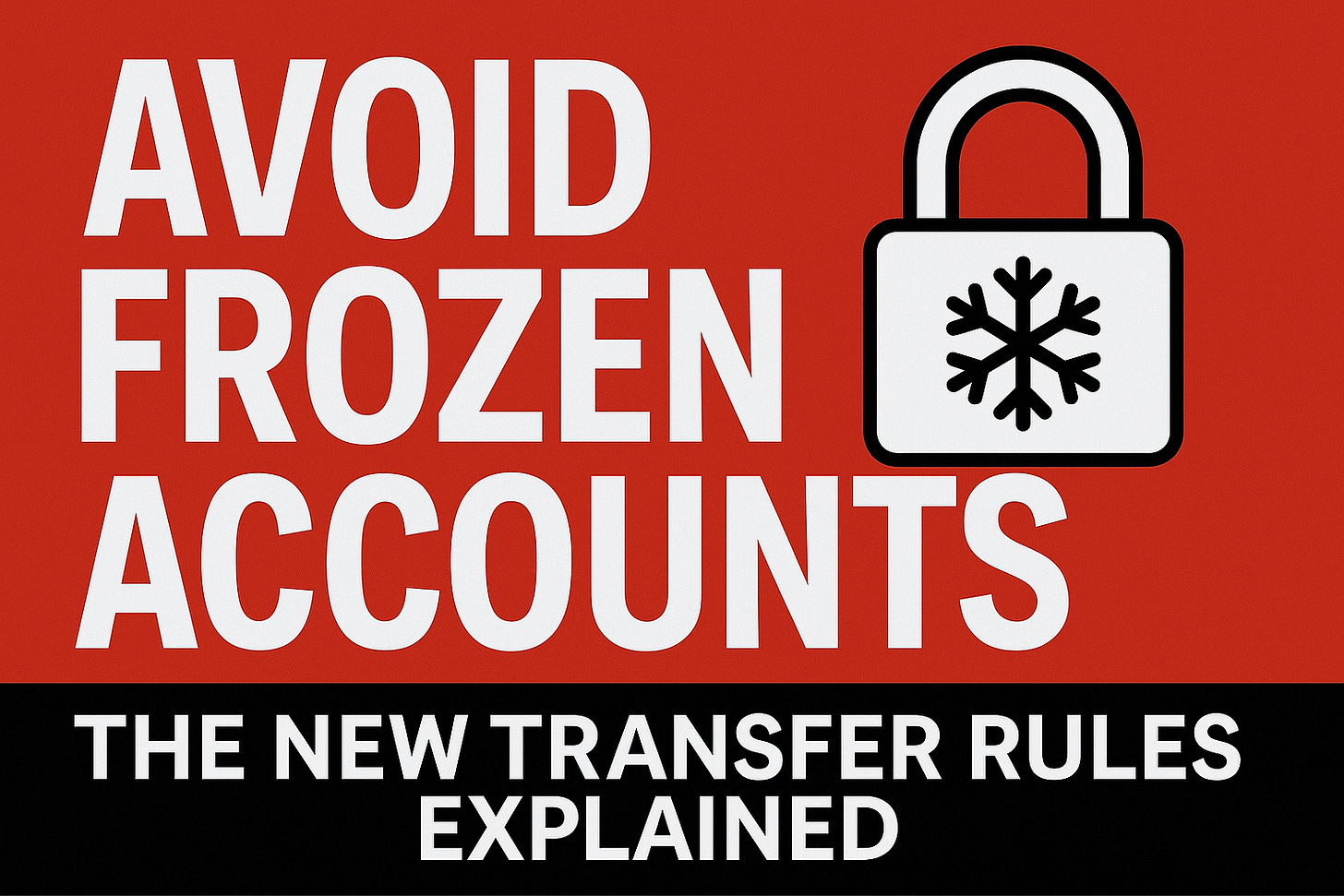Russia’s New Money Rules: What Expats, Freelancers & Crypto Users Must Know
From bank blacklists to crypto crackdowns—how to stay legal and keep your transfers flowing in 2025
🇺🇸 American Inside Russia
Exploring Life Beyond the Narrative
🗓️ June 1, 2025
“Not pro-Russian. Not anti-Western. Just pro-reality.”
This publication offers firsthand insight from an American living within the systems, culture, and contradictions of Russia. Grounded, unsponsored, and free of filtered narratives.
Russia’s May 30, 2025 Bank Transfer Law Changes: A Complete Guide for Expats, Freelancers & Crypto Users
On May 30, 2025, sweeping changes to Russia’s financial transfer regulations took effect—marking the most significant overhaul since 20141. These changes affect everything from domestic ruble transfers to international remittances and crypto-to-fiat conversions. If you live in Russia, send or receive money from abroad, freelance, or use cryptocurrency, this guide is essential.
🔍 What Exactly Changed?
The Central Bank of Russia (CBR), Ministry of Finance, and Rosfinmonitoring jointly announced new measures aimed at preventing fraud, stopping illicit money flows, and enforcing compliance with anti-sanctions frameworks2.
Key changes include:
Mandatory source verification for all foreign transfers
Transfer limits tied to identification level
New scrutiny of peer-to-peer (P2P) crypto flows
Blacklist expansion of Western remittance services
Pre-approval of accounts to receive foreign funds
These rules target both criminal “droppers” and innocent users who may unknowingly get caught in the compliance net.
💸 Transfer Limits: Know Your ID Tier
Russian financial institutions now follow a three-tier identification framework3:
Unverified (Anonymous): Basic level, no official ID attached to account. Only allows small transactions, max 15,000 RUB/transfer. Typically applies to old wallets or newly issued digital accounts without personal details.
Simplified ID (Light KYC): Limited verification—usually requires name, phone number, and partial document info (e.g., last 4 digits of passport). Permits 100,000 RUB/transfer and up to 200,000 RUB per month. Can be obtained through apps like YooMoney, SBP, or digital bank portals.
Full ID (Verified): Complete Know Your Customer process. Requires full passport scan, INN (taxpayer ID), SNILS (pension number), and sometimes a selfie or video call. Allows unlimited transfers subject to general anti-fraud and AML rules.
To obtain Full ID:
Log into your bank’s online portal or e-wallet
Submit all required identity documents
Confirm identity via video call or in-person at a branch (depending on provider)
Wait for confirmation (usually within 24–72 hours)
Note: If you’re a foreigner in Russia, you may need to upload a notarized translation of your passport, migration card, and visa or residence permit4.
These thresholds apply across bank transfers, digital wallets (like YooMoney, Qiwi, and Tinkoff Wallet), and retail payment systems.
Using services like YooMoney, MTS Bank, or KoronaPay without full ID can now result in payment denials or automatic account flagging.
⚠️ What is a Dropper?
A “dropper” is someone whose account is used—often unknowingly—to receive, relay, or cash out illicit funds5. Droppers are often recruited via freelance scams, social engineering, or innocent “favors for friends.”
New monitoring systems now:
Cap flagged accounts at 100,000 RUB/month, regardless of ID
Auto-flag accounts receiving multiple unrelated payments
Use AI to detect suspicious behavior patterns
Subject to ongoing monitoring
Frozen without notice
Causes include:
Receiving multiple unrelated payments from multiple people
Hosting third-party funds
Taking crypto-to-fiat payments without explanation
Example: One flagged user had five incoming transfers in one day, each labeled as “loan” from different cards. They were restricted within 24 hours.
🔐 Crypto-to-Ruble: Legal but Risky
There is no formal ban on crypto-to-fiat transactions—but informal restrictions are growing.
🛡️ Don’t Risk Your Wallet in Russia’s New Financial Net
You’ve seen the public warning. Now get the tools to survive it.
✅ Full transfer blacklists
✅ Step-by-step recovery guide if flagged
✅ Freelancer & crypto compliance checklist
✅ Safe services that still work
✅ Telegram-accessible legal Q&A



